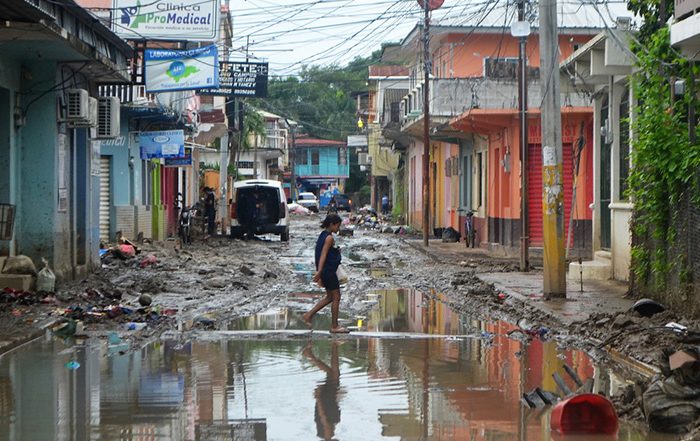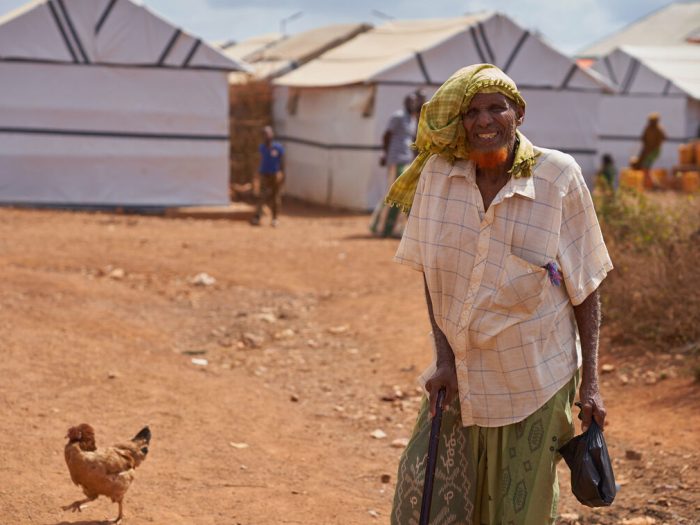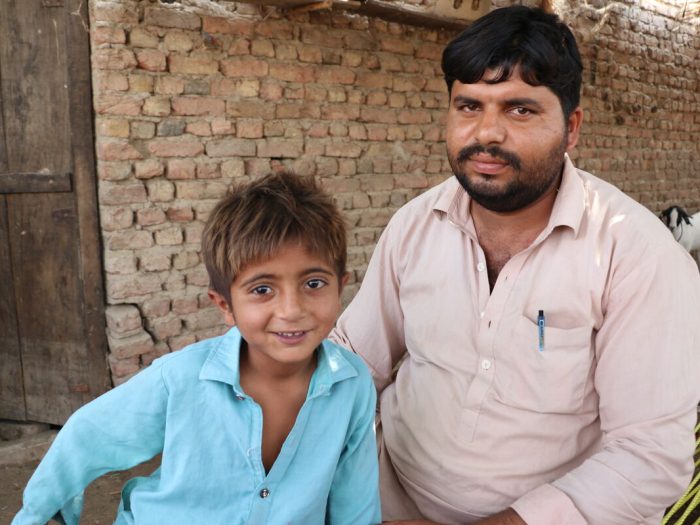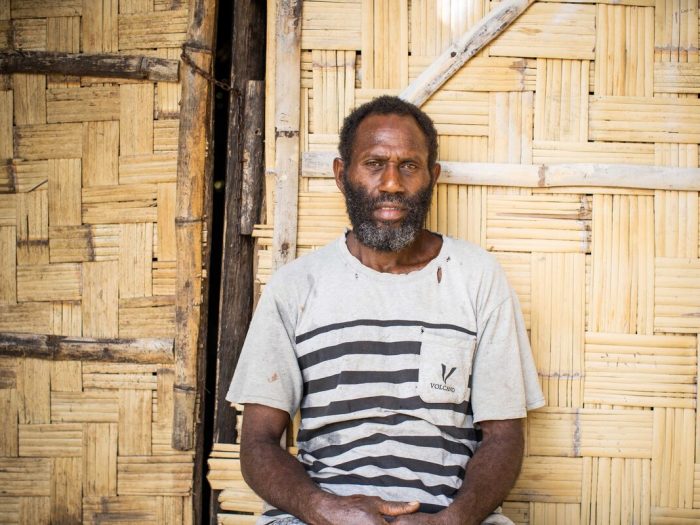
How climate change affects disasters
Climate change is a humanitarian crisis. Find out key stats about climate change, how it affects disasters and people, and what we're doing about it.
Our changing climate is creating an unprecedented need for emergency shelter around the world. Weather is becoming more extreme with severe storms, destructive floods and scorching droughts. Every day more people are becoming displaced. By 2050, a billion people will have lost their homes to disaster.
People bearing the brunt of the climate crisis are often those that contribute least to it. This includes communities in countries such as Somalia. People here have very low carbon emissions, but are faced with a cycle of struggling with drought and flash flooding made worse by the climate crisis. Yet world leaders are not investing in preparation for or rebuilding after disaster.
Some people have already been forced to become climate migrants – moving due to the changing climate. This is happening in places like Somalia, Bangladesh, Pakistan, the Philippines, and more. Communities who used to live on the land have had to move after climate change destroyed their livelihoods.
By supporting our work, you can make a difference in the lives of people without shelter due to the climate crisis.
DonateOur changing climate is making severe weather events like floods, hurricanes, droughts and wildfires worse. Without preparation, such events can turn into disasters.
Extreme weather events often happen in countries where many people live in poverty. We help vulnerable communities recover after disaster, but the climate crisis is making challenging situations worse.
It is having a huge impact on people who depend on the weather for their livelihoods. People who farm, rear livestock, or live a nomadic lifestyle are struggling to feed their families. Climate shocks bring devastating and long-term effects.
Some people and places are caught in a cycle of disaster. Countries like Malawi, where people struggle to recover from severe storms or flooding before another one hits.
We think that people need to rethink disasters. Because disasters are not natural.
Learn MoreWe respond to a range of disasters and conflicts. Some of these disasters can be more severe due to the climate crisis. Discover more about the impact on different types of weather events and the disasters they can cause below.
While not becoming more frequent, scientists do think storms are increasing in intensity. We are seeing more Category 4 and 5 storms – the most damaging. Storms can lead to other disaster such as flooding and landslides. Scientists said that Storm Daniel that caused catastrophic flooding in Libya in 2023 would have been unlikely to occur without climate change.
With climate patterns changing, some areas are seeing more intense rainfall. This can lead to flooding. Floods can destroy homes and livelihoods. They can also contaminate water supplies, leading to health risks. The heavier than usual monsoon rains that caused severe flooding in Pakistan in 2022 have been linked to climate change.
In prolonged periods without rain, areas of vegetation can dry out. This makes them extremely vulnerable to wildfires. A small spark can destroy acres of vegetation, devastating livelihoods and risking lives.
The climate crisis can contribute to other crises too. Where droughts or floods have destroyed crops this increases competition for resources. This can lead to conflict, or make existing conflicts worse. And people forced from their homes by conflict or events like earthquakes can find their situation made worse by the changing climate. For example, those displaced by the conflict in Yemen found that some tents did not last long in Yemen’s harsh climate. And people displaced by Boko Haram violence in Cameroon have suffered with extreme heat and a lack of water.


Hear from the people we support how much the climate crisis is impacting them.
In my many years on this earth, I have seen changes in the climate. The rain is sometimes too much, sometimes not enough. Crops have become unpredictable, leading to empty stomachs sometimes. The change in the climate completely turned our world upside down and forced me and my family to leave behind the life we knew. We became displaced, chasing safety from the chaos it brought.
Jimcale, displaced by the drought in Somalia


There were floods in 2010 but it did not affect as much as these floods, a vast number of livelihoods were lost, livestock and even human lives.
There has been a huge change in the weather, sometimes it is extremely hot and on the other hand heavy rain which results in flooding.
Mohammed’s family lost their home in the 2022 Monsoon flooding in Pakistan


You would think that the cyclones would just come in the cyclone season, but now when we talk about climate change, the cyclones are coming at a times when you don’t think they will come. It’s not the cyclone season but a cyclone will come.
Patrick, whose livelihood was destroyed by Cyclone Harold on Vanuatu